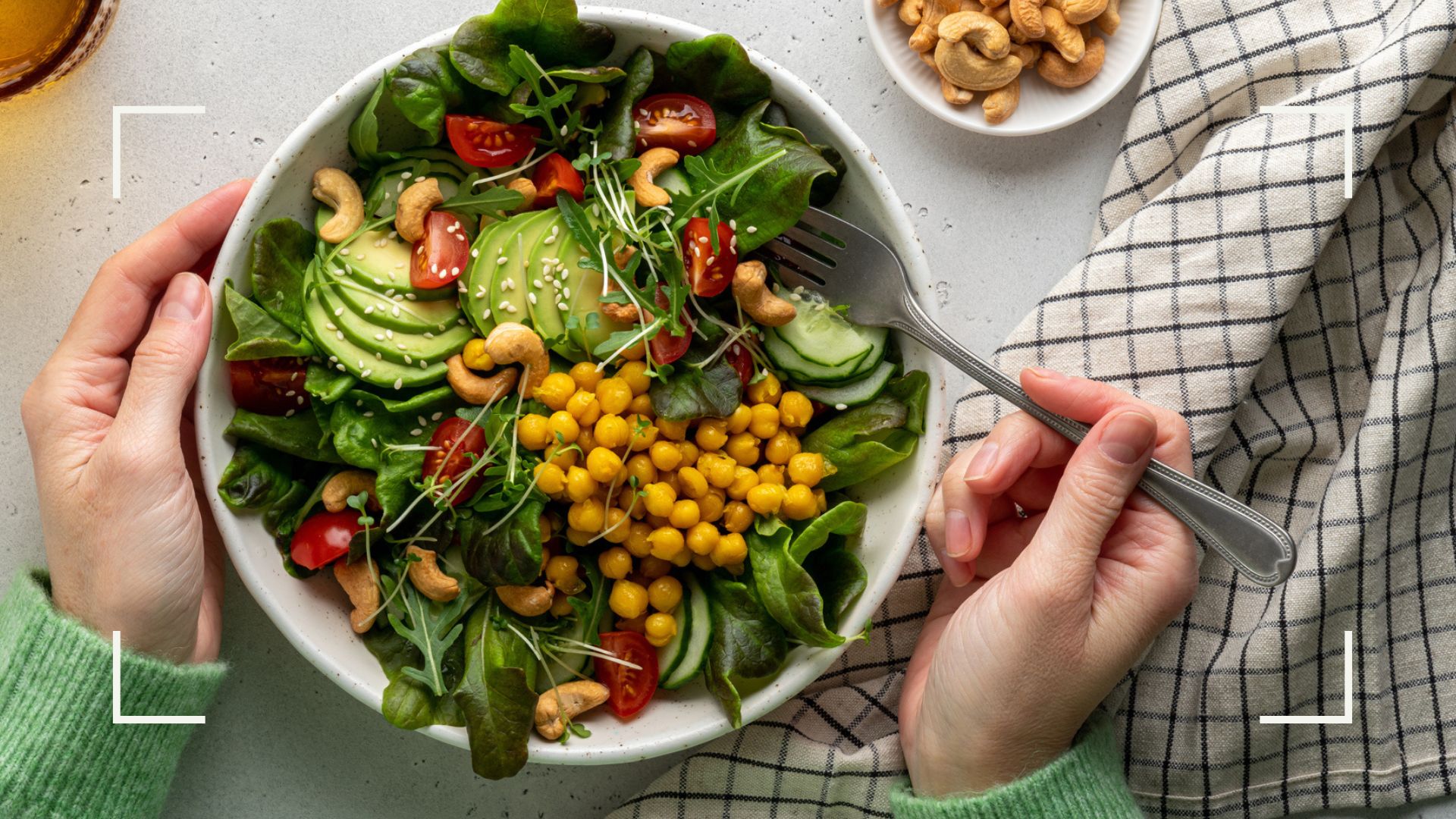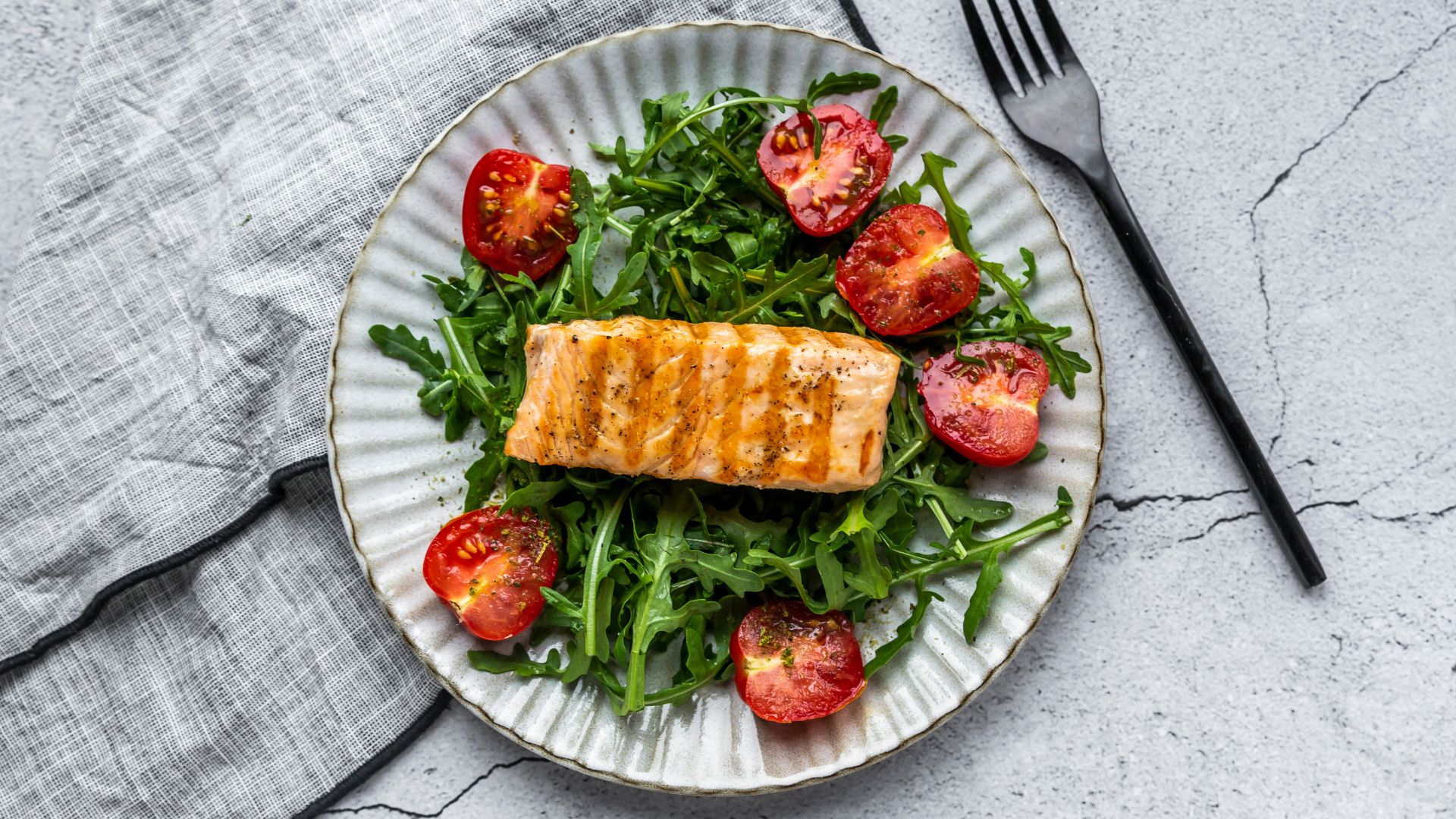The weight loss mistakes that could be stopping your progress - and how to fix them
Nutritionists reveal the most common weight loss mistakes and how to change your habits for better progress


Everyone makes weight loss mistakes when they first start changing their lifestyle habits so if you’re not making progress just yet, don’t worry, you’re definitely not the only one. Without the help of a nutritionist or personal trainer, it can be challenging to cut through the misinformation on the internet and figure out what it takes to lose weight safely and healthily.
Not only are mistakes common though, they’re also incredibly frustrating. As someone who has deliberately lost weight myself and as the health editor at woman&home, I know just how demotivating it can be. When you change up your eating and exercise habits, whatever the reason, you want to know that your efforts are paying off in the long run.
From demonizing a certain food group to falling for the biggest intermittent fasting mistakes and trying to lose a stone in a month, we’ve spoken to three leading nutritionists about the weight loss mistakes they see most often and how to fix them effectively.
What is the most common weight loss mistake?
The nutritionists agree that the most common weight loss mistake is trying to lose weight too quickly. “Many people believe they need to do a 180-degree flip overnight to achieve the weight loss results they desire. While drastic changes may produce some short-term results, they are rarely sustainable,” says Rachel Clarkson, a Doctify-reviewed dietician, and nutritionist.
“When individuals make drastic and non-sustainable changes to their diet and lifestyle, they are unlikely to be able to maintain these changes long-term,” she says, leading to a repetitive cycle of dieting but not losing weight. “This usually results in regaining the lost weight and feeling defeated. We’ve seen time and time again that making small, realistic, and sustainable changes will yield better weight loss results that are more likely to be maintained long term."
Not only that, functional nutritionist Pauline Cox says, but losing weight quickly means losing muscle mass along with your fat. “This ultimately further lowers your metabolic rate as muscle is a key user of glucose and keeps our metabolic rate high,” she explains, making healthy weight loss harder in the future.
Instead, consider starting small with a calorie deficit of around 500 calories per day. This would lead to a loss of around 1lb per week, which the CDC and the NHS both confirm is a good rate to begin at. And if you’re ever in doubt, talk to your doctor. And try to avoid quick fixes that don't focus on diet or exercise, such as the new Ozempic for weight loss trend.
Sign up to our free daily email for the latest royal and entertainment news, interesting opinion, expert advice on styling and beauty trends, and no-nonsense guides to the health and wellness questions you want answered.

Weight loss mistakes to avoid
1. Focusing on quantity over quality
Sure, it's important to be in a calorie deficit to lose weight but many people focus too much on keeping their calorie count down rather than increasing the number of nutritional foods on their plate, says functional nutritionist Tanya Borowski.
"The body burns calories depending on several factors, including the types of food you eat, your body's metabolic rate, and the type of organisms living in your gut," she says, as it's all linked to how fast your metabolic rate is, aka the speed which you burn calories at rest.
"All this means that you can eat the same number of calories as our best friend, yet have very different outcomes when it comes to your weight," she adds.
So while focusing on your deficit, it's important to avoid one of the most common weight loss mistakes and include nutrient-rich foods in your daily diet that will provide energy and improve your gut health.
2. Following fad diets
‘Fad’ diets, also known as crash dieting, are called so for a reason. They promise significant results in very little time and often promote themselves as being very easy, with participants told ‘all they have to do’ is drop their calorie intake to alarmingly low levels.
“Many of these are not backed with enough scientific evidence to show they actually work and without scientific evidence, we cannot recommend with certainty that this is a beneficial method of losing weight,” warns Clarkson.
“Secondly, not all fad diets work for everyone. You may have noticed previously that what works for your friends doesn’t work for you. This is because we all carry different versions of genes that cause us to metabolize nutrients differently, achieving weight loss,” Clarkson, who works with this concept very closely at The DNA Dietician. Instead, it's best to consider learning how to lose weight without dieting with a more sustainable method.
3. Demonizing an entire food group
Over the years, diets like Weight Watchers and the keto diet plan have encouraged people to cut out entire food groups - and it's often carbohydrates that take the hit. These are the body’s main source of energy, so when we exercise, this is what we burn first before then burning fat.
But actually, Borowski says, “the body needs all the food groups like protein, fats, natural and unprocessed carbohydrates to drive metabolism, to make neurotransmitters and hormones, and to feed our gut microbiome. Removing these will rapidly deplete gut microbiome diversity and with that comes weight loss resistance and insulin resistance.”
There’s also little evidence to suggest that cutting carbohydrates or any food group out of your diet has any impact on how successfully you lose weight, provided you’re in a deficit.

4. Not eating enough protein
Protein is one of the body’s essential building blocks, helping us to maintain, grow, and repair muscle, says Cox, who is also the author of Primal Living in a Modern World and the nutritional advisor to Wiley’s Finest sustainable supplements. "Protein provides the body with amino acids, the building blocks needed for building strong muscles, hair, skin, nails, and bones," she says. "Amino acids trigger an increase in growth hormone, which can lead to building and retaining lean muscle mass."
It’s also one of the most satiating macronutrients, says Borowski, pointing to a study by Yale University School of Medicine, meaning that you’re more likely to feel fuller for longer after eating a protein-based meal and so much less likely to snack through the day, pushing yourself out of the deficit.
To up your protein intake and avoid one of the biggest weight loss mistakes, "consume plenty of high-quality protein such as salmon, mackerel, anchovies and herring, eggs, chicken, some beef and lamb," says Cox. If you're vegetarian or follow a vegan diet, you can easily substitute this with pulses, lentils, seitan, tofu, or the best protein shake for losing weight alongside regular meals.
Are protein bars good for weight loss? It's a common question with a positive answer. If you're looking to lose weight and often find yourself snacking between meals, craving sweet foods, then bars like these can be a great way to keep you feeling full.
5. Not eating enough fiber
Many of us don't eat enough fiber-rich foods every day and this has a huge knock on our overall gut health, as fiber famously aids digestion, and it limits the potential for weight loss, explains Cox. "Many people know the benefits of a fiber-rich diet for bowel health but there is a lot more to fiber than meets the eye," she says.
"Fiber offers a source of fuel to the microbes living in your gut. The microbiome is highly linked to our overall health including our weight status. Yes, there is such a thing as an obese microbiome and a slim microbiome. Microbes within the gut can direct you to store fat or burn fat."
As well as this, research from Louisiana State University concludes that fiber is an incredibly satiating nutrient and it'll help you stay fuller for longer, much like protein.
To get more fiber in your diet, Cox suggests the following: "Looking after your friendly bacteria starts with feeding them a diet rich in fiber, plenty of colorful veggies, and a daily dose of fermented foods such as sauerkraut." An eating plan like the 80/20 diet rule could help with this as it actively encourages a nutrient-rich, balanced diet throughout the week.
6. Not keeping your insulin levels stable
In other words, the balance of sugar in your body has gone too far one way. “Insulin is a hormone produced when blood sugars increase after eating or when we are stressed. Insulin and growth hormone have a close relationship and both have a big impact on our weight status and fat burning,” explains Cox.
“Insulin instructs the body to store fat and blocks fat burning and consistently high levels of insulin see us gaining stubborn weight,” she says. “Keeping insulin levels optimal is key in preventing fat storage.”
This is even more important as we get older, she adds, as insulin sensitivity declines as we age, making it even more important to monitor sugar intake and keep blood sugars balanced and insulin levels stable.
7. Measuring progress by the scales
Many people judge the progress they make by the numbers on the bathroom scale. Not only is this risky business as your scales might not be correct, but it’s also not always the most useful information.
“Just measuring weight on a scale doesn’t indicate increases in muscle mass or water weight, which can affect the weight on the scale,” explains Clarkson. So if you’ve been focusing on resistance training for your daily workout, this is definitely one of the top weight loss mistakes to look out for.
“People can also get quite obsessed with the number and with seeing a constant downward trend,” she adds. “In reality, weight loss is rarely linear. Plateaus and spikes are normal and part of the process and there are so many non-scale measures that should be used to measure progress alongside scale weight.”
If you are looking for numerical evidence of weight loss, Clarkson suggests looking at other factors such as waist circumference, clothing size, and physical endurance levels. Can you run further or faster than before?
“These are all great measures of weight loss and improved health status, and they should all be taken into account when measuring progress.”

8. Overexercising
If you’ve been trying to lose weight healthily then you know that exercise is a pretty essential part of the process. However, one of the biggest workout mistakes when it comes to weight loss is exercising too much. “Many people believe that the more you move, the more calories you burn and the more weight you will lose,” says Clarkson. “Although theoretically, this may make sense in practice it’s far from the truth.”
She explains that excessive amounts of exercise, especially increasing how often you do cardio, can lead to a big increase in hunger hormones, making you excessively hungry, and so more likely to eat out of your deficit. You may also struggle to maintain the pace of movement, as many people experience joint and muscle issues when overexercising, alongside mental fatigue, a study by Vrije Universiteit explains.
If you're struggling with your appetite during the weight loss journey, reduce how much you exercise and consider whether you should eat before or after a workout. While working out has so many benefits to our health aside from weight loss, it's worth considering less-intense exercise during this time. For example, try using ankle weights if you love walking workouts to add a bit of resistance but otherwise focus on cardio and resistance training that doesn't put huge stress on your system.
9. Not doing enough strength training
Resistance training, also known as strength training, is a great way to stimulate muscle growth and raise your metabolic rate - among many other benefits not linked to weight loss, like lessening perimenopause symptoms.
With such a focus on cardio normally, it's easy to forget that this type of training can be your best friend. "A 20-minute burst of resistance exercise is enough to peak growth hormone in women," says Cox. "The greater the effort the greater the benefit to boosting growth hormone and increasing lean muscle, which helps increase metabolic rate and reduce the sagging associated with low growth hormone."
However, both Cox and Clarkson warn that it's also possible to overexercise with strength training. So if you're focusing on this, it's also important to consider how often you should lift weights every week to achieve your goals and check in with your doctor if you have any issues. “Too much strength training can lead to muscle loss, especially when recovery time is not sufficient and protein intake is low," Clarkson says.
10. Ignoring the role of sleep and stress
One of the biggest weight loss mistakes people make when they first start is not prioritizing sleep and lowering their stress levels, Clarkson says. Alongside exercise and nutrition, these are the two most important factors of a healthy lifestyle - which is what you need to lose weight.
“There is a misconception in the weight loss space that all you need to do is eat less and move more. But high levels of stress can increase the stress hormone cortisol, which can increase fat storage in the body and lead to difficulty losing weight," she says. But as a study in affiliation with Mary Fitzgerald Hospital explains, it is possible to reverse these effects if you can learn how to deal with stress better.
"Bad quality sleep or short sleep duration can also increase hunger hormones the following day and can also increase the likelihood of consuming high-sugar and high-fat foods,” she adds. Everyone will need a different amount of sleep but if you’re trying to lose weight then learning how to sleep better will also be important regardless, especially if you’re doing lots of exercise during the day.

Grace Walsh is woman&home's Health Channel Editor, working across the areas of fitness, nutrition, sleep, mental health, relationships, and sex. She is also a qualified fitness instructor. In 2025, she will be taking on her third marathon in Brighton, completing her first ultra marathon, and qualifying as a certified personal trainer and nutrition coach.
A digital journalist with over seven years experience as a writer and editor for UK publications, Grace has covered (almost) everything in the world of health and wellbeing with bylines in Cosmopolitan, Red, The i Paper, GoodtoKnow, and more.